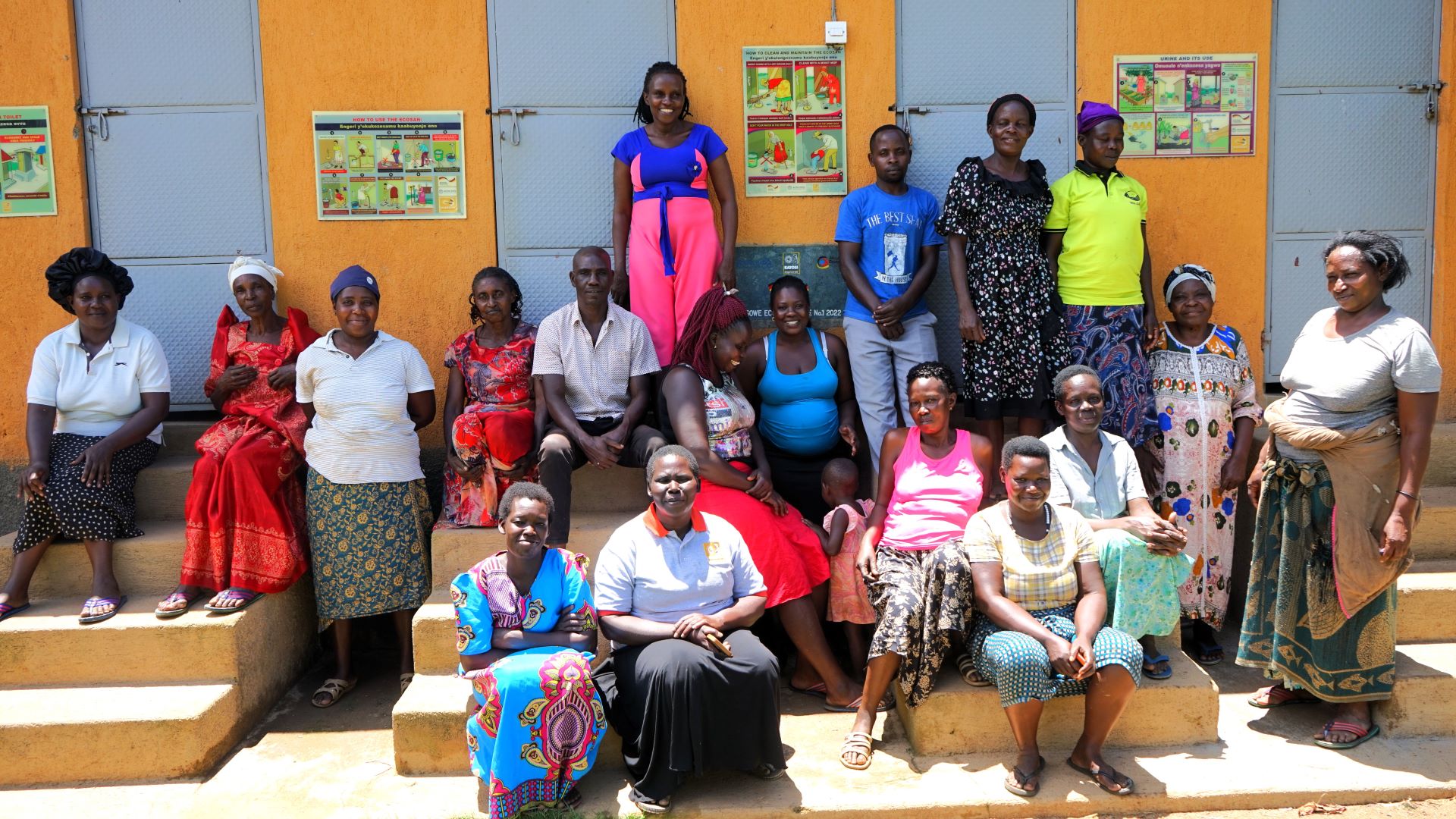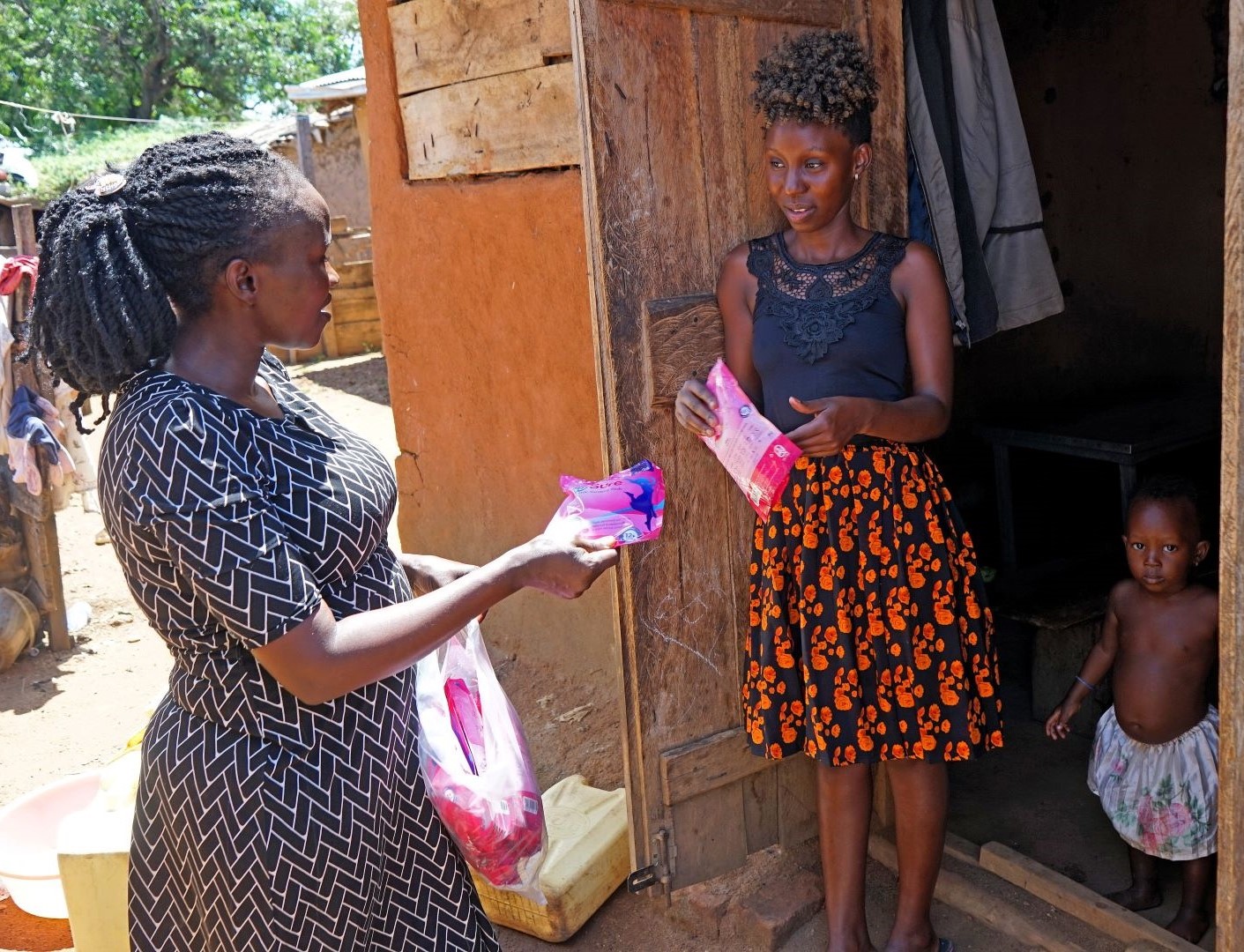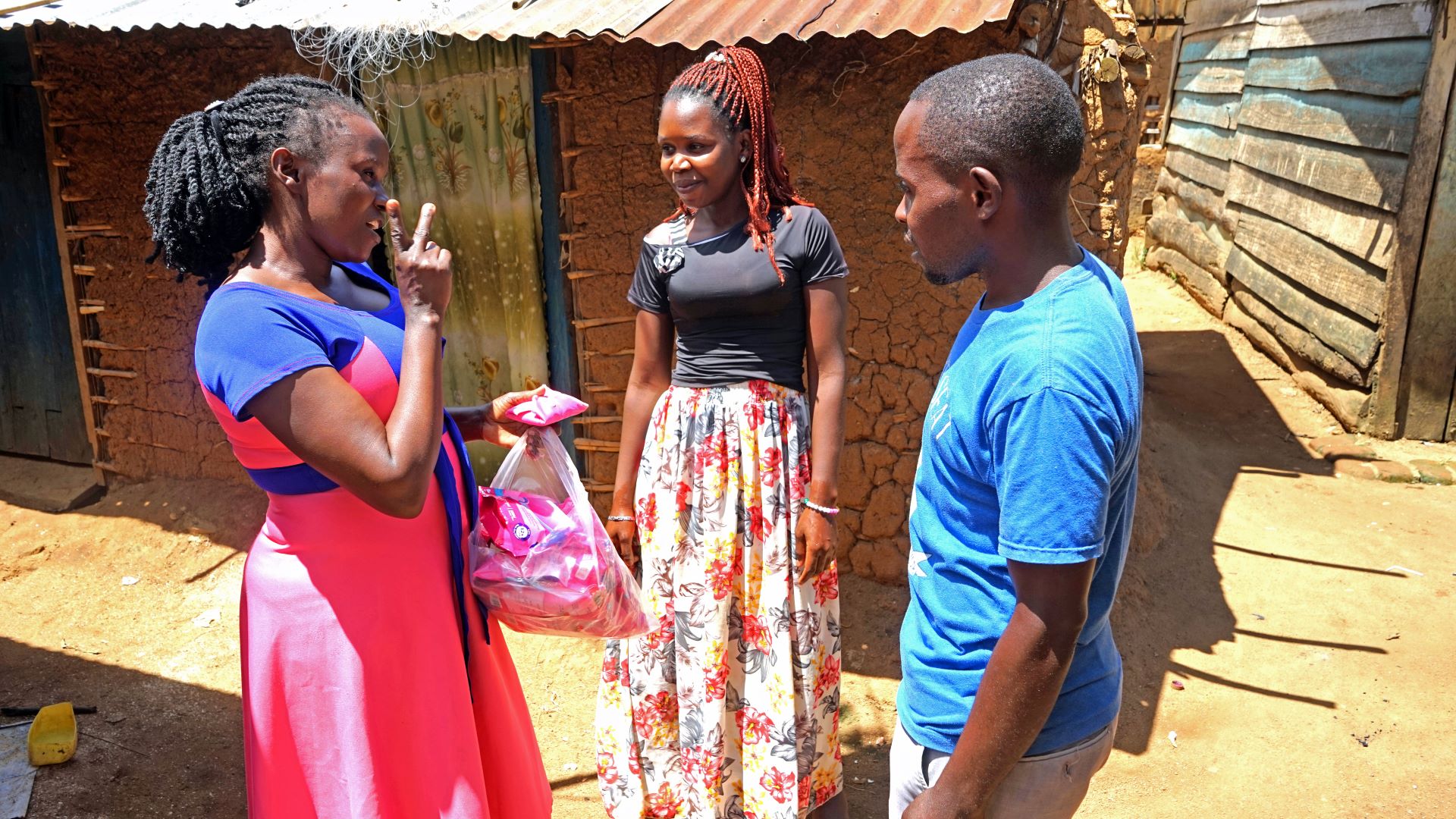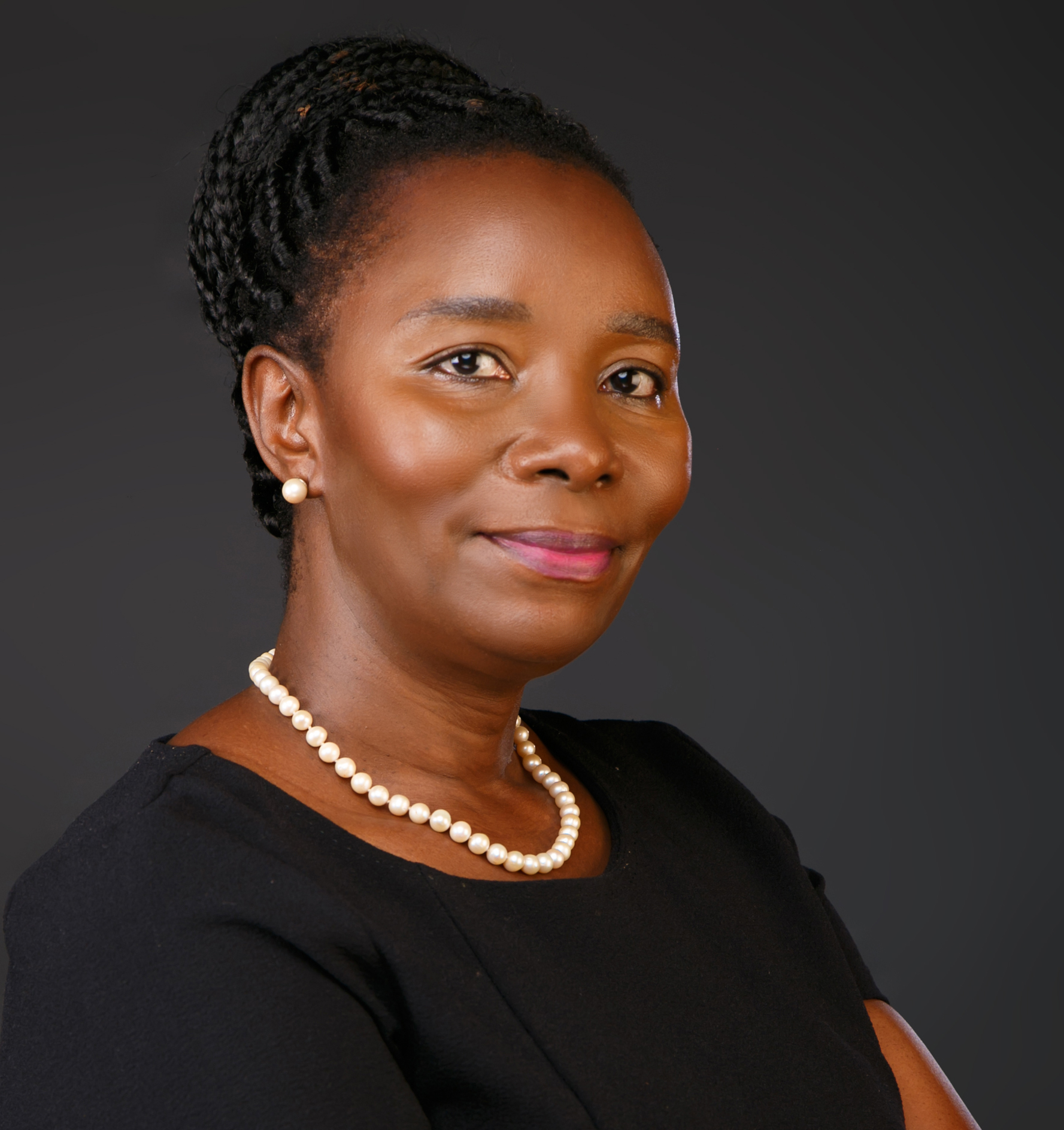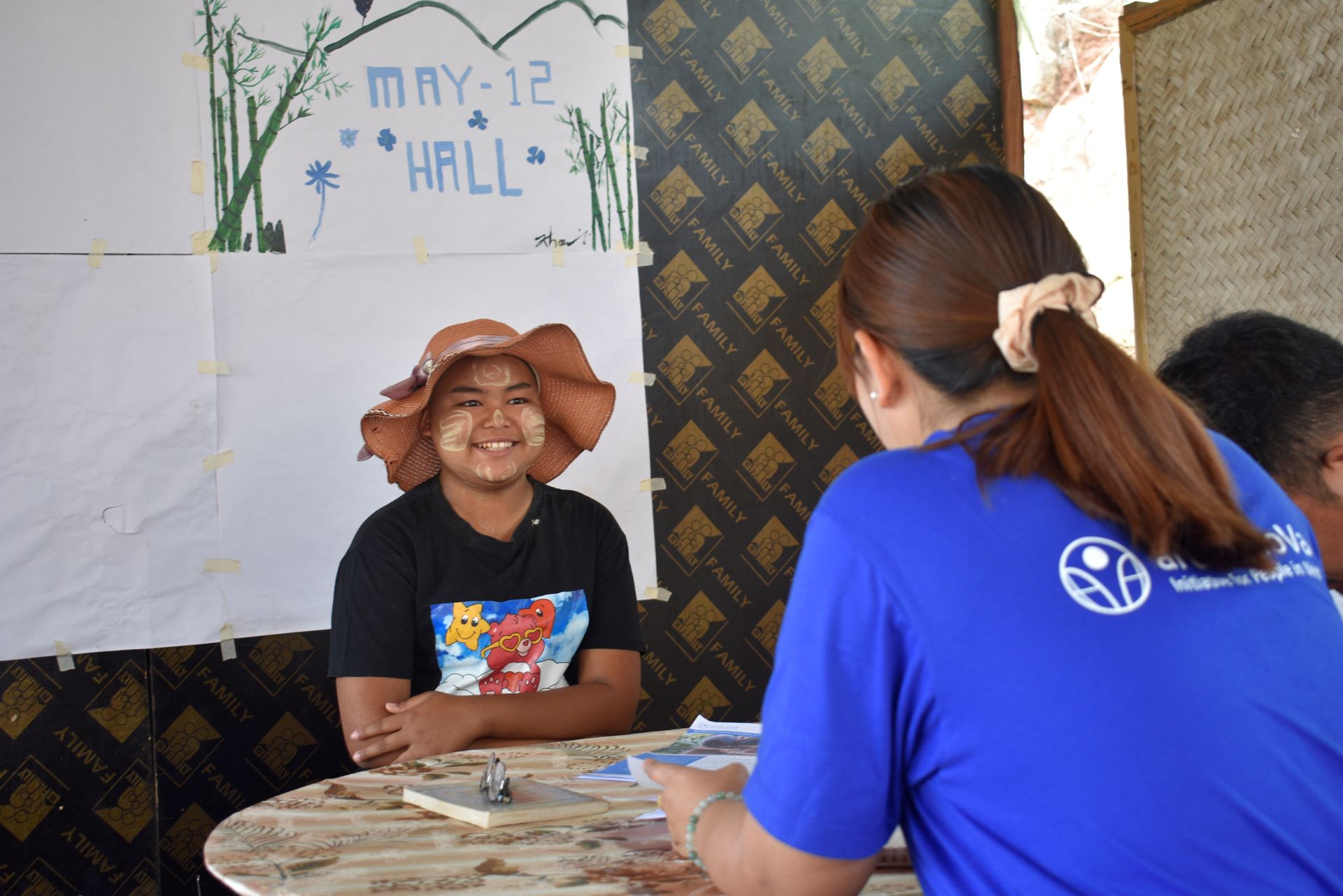In the particularly poverty-stricken communities along Lake Victoria, women and girls often have no choice but to manage their periods with small plastic bags full of soil and withdraw from the community in shame during their menstruation. As a result, the days of menstruation become a forced time-out that interrupts school attendance and hinders employment.
No Access to sanitary products
"Many women and girls simply can't afford sanitary towels," says Betty Nakato. She lives on the island of Sowe and is one of twelve women trained in our project with the local partner organization KWDT (Katosi Women Development Trust), who sell reusable, locally produced sanitary towels at an affordable price and educate the community about periods.
Before Betty Nakato and her fellow campaigners became active, most women in the village had no opportunity to obtain safe menstrual products. In addition, periods were a big taboo subject in the community, says the 36-year-old: "When even mothers are afraid to talk to their daughters about menstruation, young girls grow up feeling ashamed and unaware of their bodies."
The single mother therefore sees her work not only as an income opportunity, but also as a chance to end the stigma surrounding periods in her community - not least for the future of her three daughters.
A woman from Buleebi landing site calculated that she would have to spend around 42,000 Ugandan shillings a year on simple disposable sanitary towels for herself and her four daughters. That's around 10 euros per person, i.e. a total of 50 euros for the family and therefore more than te family pays annually for ground rental fees. How is that supposed to work? It’s disheartening to hear that women have to put their health at risk due to financial strain. That's one of the reasons why menstrual hygiene activities are so important to us.
Access to water and sanitary facilities a must
Betty Nakato, the hygiene promoter on Sowe Island, is particularly concerned about another issue affecting the lives of girls and women: "There is a lack of sanitary facilities in Uganda - in schools, workplaces and public spaces. As a result, girls and women are unable to take advantage of many educational and career opportunities because they have no way of protecting themselves in the places where they want to learn and work.
arche noVa has been working against this injustice for many years by building gender-friendly toilets in the communities around Lake Victoria.
Spreading knowledge, clarifying questions
Ignorance and uncertainty about menstrual hygiene is a worldwide phenomenon - including in Myanmar. Educational events are therefore an integral part of our country program in our project areas. Ma Theingi Win also took part in one of the workshops. The 17-year-old schoolgirl has felt relieved ever since. "I didn’t know how to use sanitary pads and where to dispose properly.," she reports. She is by no means the only one. Adult women are also unsure.
"We always had problems with bad smells in the latrines," says 43-year-old Daw Eh May from Bamboo, one of the informal settlements for internally displaced people in Lashio Township, where arche noVa works in the areas of water, sanitation and hygiene. The girls' and women's unanswered questions about menstruation were discussed in the hygiene session of our project. "Now I wrap the pads in plastic and throw them in the garbage can. And I wash my hands before I use new pads," says Ma Theingi Win. "I feel so relieved that we were able to talk so openly. Since the training, I can also ask my mother about the topic much more openly."
Our country programme is implemented with local partner organizations. For example, there are awareness-raising events in communities and hygiene promoters are trained.
arche noVa campaigns worldwide for the topic of menstruation
- Distribution of hygiene products in emergency aid and development cooperation
- Toilet construction at schools, health facilities and in communities, taking into account the special needs of girls and women
- Access to water for personal hygiene and for washing clothes and reusable hygiene materials
- Promoting a positive approach to menstruation so that girls and women can make informed decisions about their lives and their bodies
- Breaking the taboo, overcoming discrimination against people with menstruation through education, exchange and capacity building in project communities
Our vision is a world without need, in which people can live in self-determination and dignity. For arche noVa, the topic of menstrual hygiene is an essential part of this. Because no society can afford to keep half of its people small. Projects that empower girls and women are a particularly effective way to achieve positive development for all.
Menstrual Hygiene Day
Menstrual Hygiene Day takes place around the world on May 28. It draws attention to the needs of the 1.9 billion people in the world who menstruate every month. It is intended to raise awareness and break the silence on the subject. Anyone and everyone can take part and contribute,
- that people can talk openly about their menstruation
- that taboos are broken and prejudices are reduced
- that hygiene material becomes accessible in their own environment (e.g. for guests at home)
- that period poverty is reduced (for example by donating hygiene materials to a school or homeless shelter)
- that respectful treatment is practiced in the working environment, in the family and among friends
- that aid projects with a focus on menstrual hygiene are implemented worldwide
arche noVa also gives the topic the space it deserves in Education for Sustainable Development (ESD), for example in the Development Cooperation and Humanitarian Aid project day.

